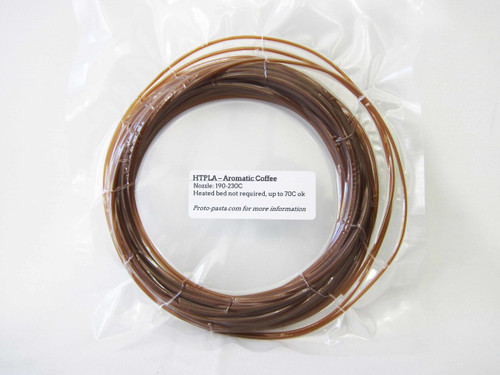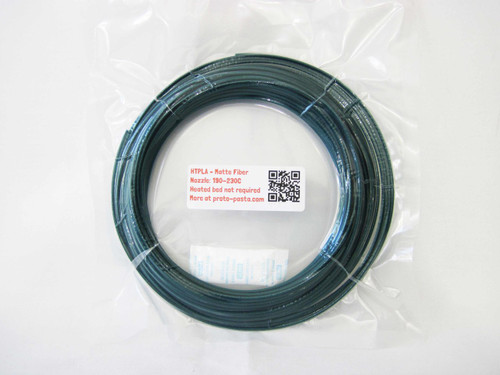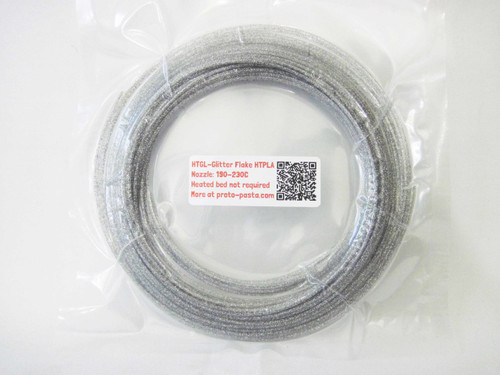- No abrasive fillers so expect normal wear with standard nozzles.
- Aromatic Coffee High Temp Annealable PLA 3D Printing Filament
- 500g is on a 8" diameter spool
- Usable on most PLA-compatible printers, such as Lulzbot, Makerbot, FlashForge, Dremel, Ultimaker, Printrbot, and more!
50 G Sample of 1.75mm Proto-Pasta Aromatic Coffee HTPLA Annealable PLA Filament.
Proto-pasta's Aromatic Coffee PLA is the first specialty blend based on our new High Temp PLA formulation. This seemingly odorless plastic releases an invigorating roast coffee scent when heated. Beyond this novel feature, it is the most beautiful pearlescent, translucent bronze color when printed and becomes very wood-like when heat treated. Coffee PLA prints like standard PLA but has a potential Heat Deflection Temperature (HDT) of as much as 140C (285F) depending on post-processing. This means parts retain more stiffness and form at higher temperatures (no warping on your sunny car dashboard).
For maximum performance, your prints should be heat treated (i.e. crystallized) in an oven until you see a change from translucent to opaque. Yes, there is an obvious visual change indicating the improved performance! We had good luck in a lab oven at 110C (230F) for an hour or less. We recommend leaving the supports on your parts, placing them on a non-radiating surface (like glass, ceramic, or composite), and letting them cool in the oven to minimize distortion. Parts can be baked at a lower temperature (though must be above 60C for any reaction) for a longer time with less risk of unwanted deformation.
In our experience, good results were achieved using standard PLA parameters with standard build surface preparation (blue tape, glue stick, or BuildTak). No heated bed required. Some shrinkage may occur in the annealing process, so dimension critical parts may need to be scaled as much as 2.5% to compensate.







